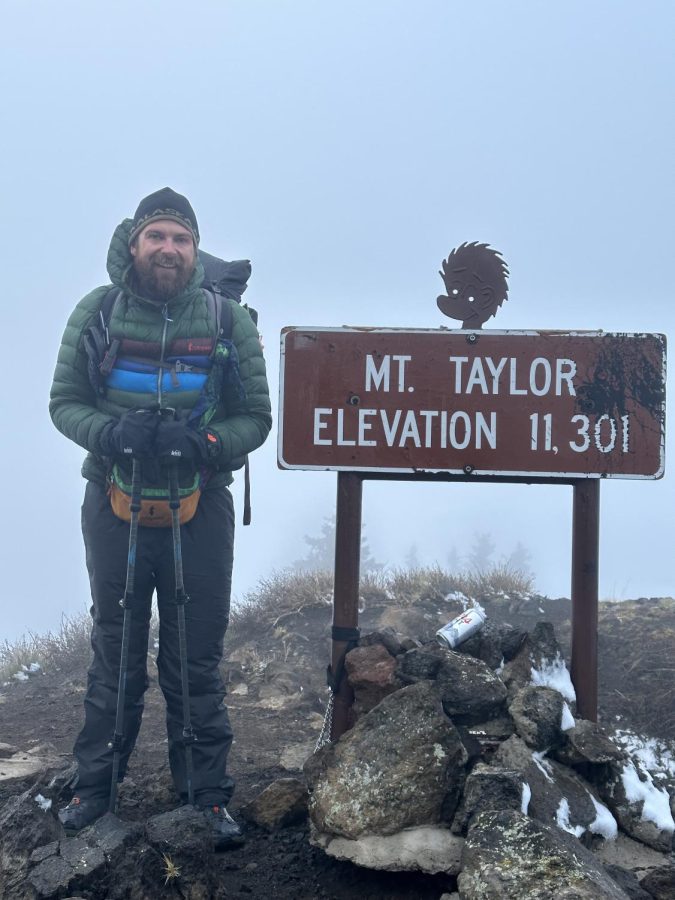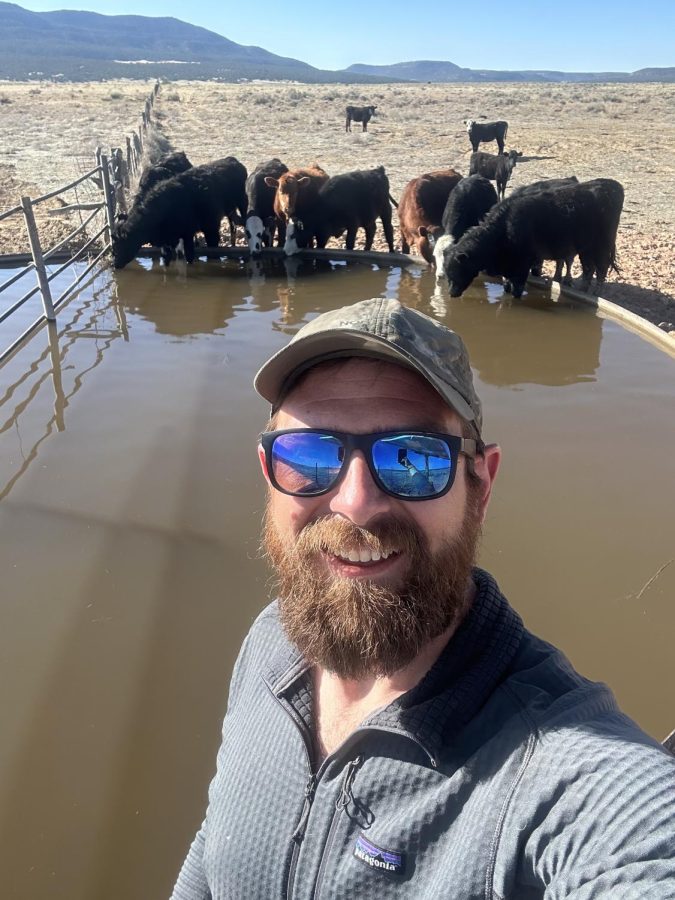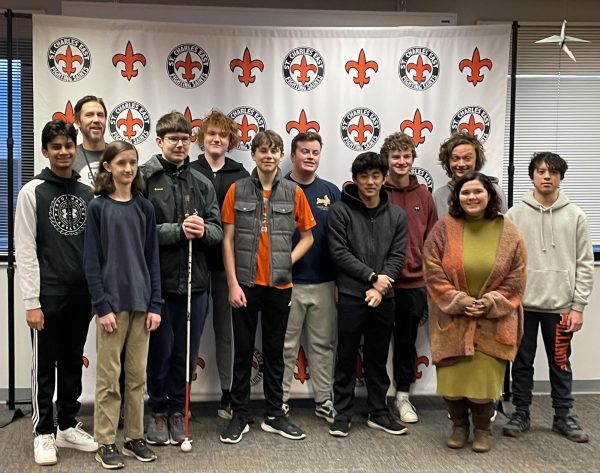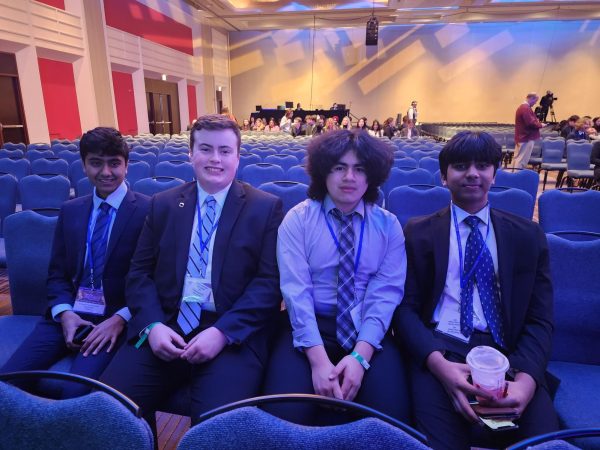A 3,100 mile Journey: Veteran Alex Volz Hikes for a Cause
June 17, 2023
In May, East teacher Michael Volz spoke with the X-ray staff regarding his son Alex, an Afghanistan veteran, and the mental health challenges he experienced following his return from combat.
Portions of Alex’s story were highlighted in our May editorial. A more in-depth look at Alex’s story can be found here.
Not long after graduating from East in 2007, Alex Volz joined the US Marines, serving as an infantryman.
He served two deployments to Afghanistan over a period of four years, and he returned home in 2012, according to Mr. Volz.
However, upon returning from service, something inside Alex had changed.
According to Mr. Volz, the toll war had taken on his son was very apparent. “To reacclimate back to this kind of life [after war] is really hard,” said Volz.
Among the new challenges Alex faced when reacclimating to life after war were sounds.
Volz shared a particular instance in which Alex spent time with friends, “They were shooting pool…I don’t know if you’ve ever heard the sound when you break a set of pool balls, but it’s a… [Volz gave a loud, sudden clap.] He dropped to the ground.”
“Just that condition,” said Volz, “You hear rounds and you go down. It took a long time to lose some of those instincts that he developed in war.”
Sleep presented an additional challenge for Alex. “He had a terrible time sleeping,” said Volz. “[There was] a lot of sleepwalking.”
According to Volz, Alex’s patience also suffered. “He got frustrated really early [with] sounds and a lot of stuff going on…and to this day it’s still the same way. If he gets in [a space] with a bunch of people all talking…his stress levels get really high, and he’s got to exit from that situation.”
“He [Alex] will tell you in his own words that he came back and he had his issues. He binge-drank, he gained weight, and he fell into a depression,” said Volz.
According to Volz, Alex’s post-war struggles impacted the family as well. “It was hard on the family because we felt helpless. If you could take that pain away. If you could somehow do something to change that…it’s still your kid and you still see them struggle.”
Struggles similar to those experienced by Alex are not uncommon among U.S veterans. According to a 2021 research analysis by BMC Psychiatry, “20% of veterans are affected by depression, and 11% experience suicidal ideation.” This is compared to 8.4% of all U.S adults who experienced one or more depressive episodes in 2020, according to the National Institute of Mental Health.
As close as Alex’s relationship with his parents was, said Volz, he kept his war-related struggles and experiences close to the vest.
“With that specifically, I think he shared it more with the other people he experienced it with. And I think I understand why he did that,” said Volz. “We can’t possibly understand what it was like. How could we?”
We can’t possibly understand what it was like. How could we?
— Michael Volz
“We would talk…but I don’t think I knew the depth of his depression,” said Volz. “It was just something he just kept so close.”
Many of Alex’s brothers in combat also struggled with mental health following their return from the Marines. Over the years, Alex lost multiple brothers to suicide.
The loss of a brother in 2020 “was probably the hardest for him,” said Volz. “People that go to war, there’s a bond that’s probably stronger than a family bond.”
Once Alex came to realize his state, Volz believes it was the changes he began to make in his life, such as focusing on his health and exercising, that helped him out of his depression.
Alex bought a bike and went on century rides “all the time,” said Volz.
Support from those who had also experienced warfare were influential in helping Alex as well.
“One of his biggest influences was a teacher we had here by the name of Mike Karson…he retired a few years ago, but Mike went through Vietnam and was instrumental when Alex came home. He understood what Alex was going through,” said Volz, “And he was a lifesaver.”
He understood what Alex was going through…and he was a lifesaver.
— Michael Volz
Alex is currently on a hike through Continental Divide Trail, stretching from the Mexican border in New Mexico to the Canadian border in Glacier National Park. He began the approximately 3,100 mile journey on April 17, 2023.
Alex has used the journey to raise funds for the veterans-helping-veterans organization Patrol Base Abbate.
Volz believes what started out as a personal journey for closure became Alex’s way to draw attention and awareness to the cause for veterans and mental health.
“The focus of his journey is on this issue, is on trying to help the veterans,” said Volz,” I don’t think they get the kind of help that they deserve.”
Many East teachers and community members, including some of Alex’s former teachers, have donated to support Alex on his journey.
“[This is] a great school, it’s a really good school. The support he [Alex] has received from teachers, his past teachers and fellow teachers, has been amazing. When I told him that I had put this out at school and the response, he said, ‘I’m humbled, humbled by their concern.’”
For additional information regarding Alex’s story and to support this cause, visit https://donate.pbabbate.org/campaign/because-they-can’t-veteran-suicide-awareness-trek/c478445.
April 17, 2023: Alex sets out for Continental Divide Trail.
May 15, 2023: Alex finishes hiking Mount Taylor in New Mexico.
June 10, 2023: Alex has passed into Colorado and is now dealing with snow in the mountain trails.












